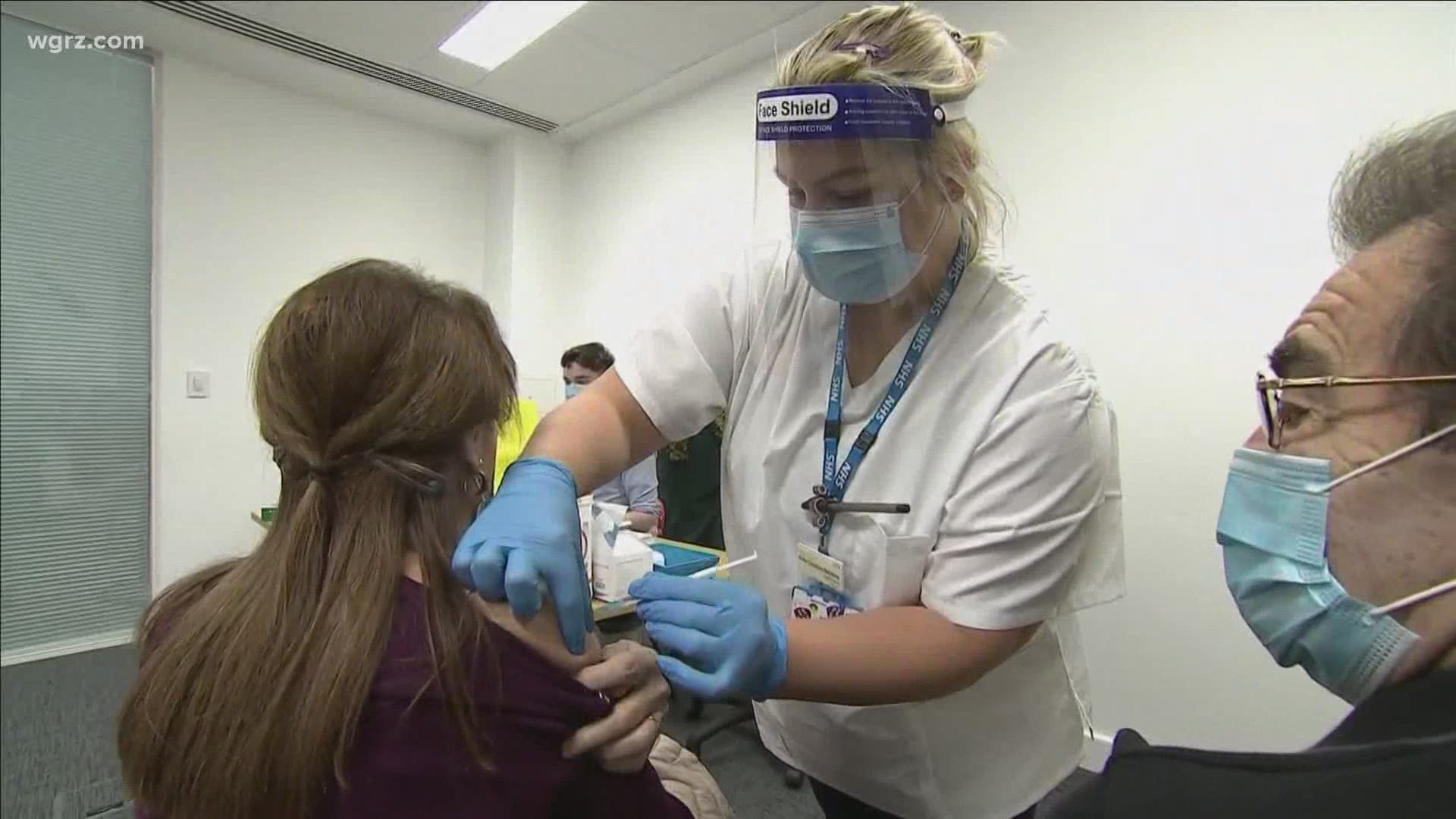BUFFALO, N.Y. — As the nation waits for an U.S. Food and Drug Administration approval on a vaccine, questions and concerns linger on about vaccinations: about their efficacy, safety, distribution, and the list goes on.
With 170,000 doses expected to be distributed, if approved, in New York State and 14,500 of those doses coming right here to Western New York, some residents have questions they want answered by the experts.
Dr. Thomas Russo is Professor-In-Chief at University at Buffalo's Department of Infectious Diseases. He says he's completely understandable for people to be concerned about anything new.
However, with data showing a 95% efficacy rate of two R&A vaccines on the table (Pfizer and Moderna), he's confident that as the public learns more they, will start to feel more comfortable with the idea of getting vaccinated.
"I think it's critical for us as health care providers to provide information to the public, make them aware of how effective the vaccines are, how safe the vaccines are, and what they can expect when getting vaccinated," Dr. Russo says.
So, what are some of those top questions and concerns?
1. Once vaccinated, can I pass COVID-19 on to someone else?
Dr. Russo says, in short, it's too early to say.
"It remains possible that if you're vaccinated, you could actually develop asymptomatic infections, so you feel well and have no symptoms, but potentially you could spread the virus to others," he says.
That is why more data and monitorization needs to take place to ensure that if, in fact, the virus replicates a vaccinated, non-symptomatic individual can't infect someone else.
2. Once vaccinated, do I still need to wear a mask in public?
"Yes," Dr. Russo says. "One, since we don't know if you can in fact spread it to someone else, even after getting vaccinated, you should for the next four to six months continue to wear your mask and socially distance."
Dr. Russo says another reason is that there's no perfect vaccine, and it's going to take sometime to iron out any kinks as more data comes in and more vaccinated individuals are monitored.
3. Is it safe for both children and adults to get the same exact vaccine?
This is perhaps one of the most frequently asked questions to which Dr. Russo says, "it's too soon to tell."
Reason being, there's not enough testing in that area to draw enough data yet.
"Moderna is planning to do trials in 12 to 17-year-olds, Pfizer has started to enroll 12 to 17-year-olds as well, but that data is not available," he says.
One bout of confidence, Dr. Russo says, is as more people start to see the positive effects getting vaccinated has on those in nursing homes, staff and frontline workers, hopefully confidence and comfort will grow and spread and gradually more and more people will follow suit.
Dr. Russo tells 2 On Your Side, "I'm hoping that the number of cases will be very low, if not zero here in Western New York as we roll into May and June."

